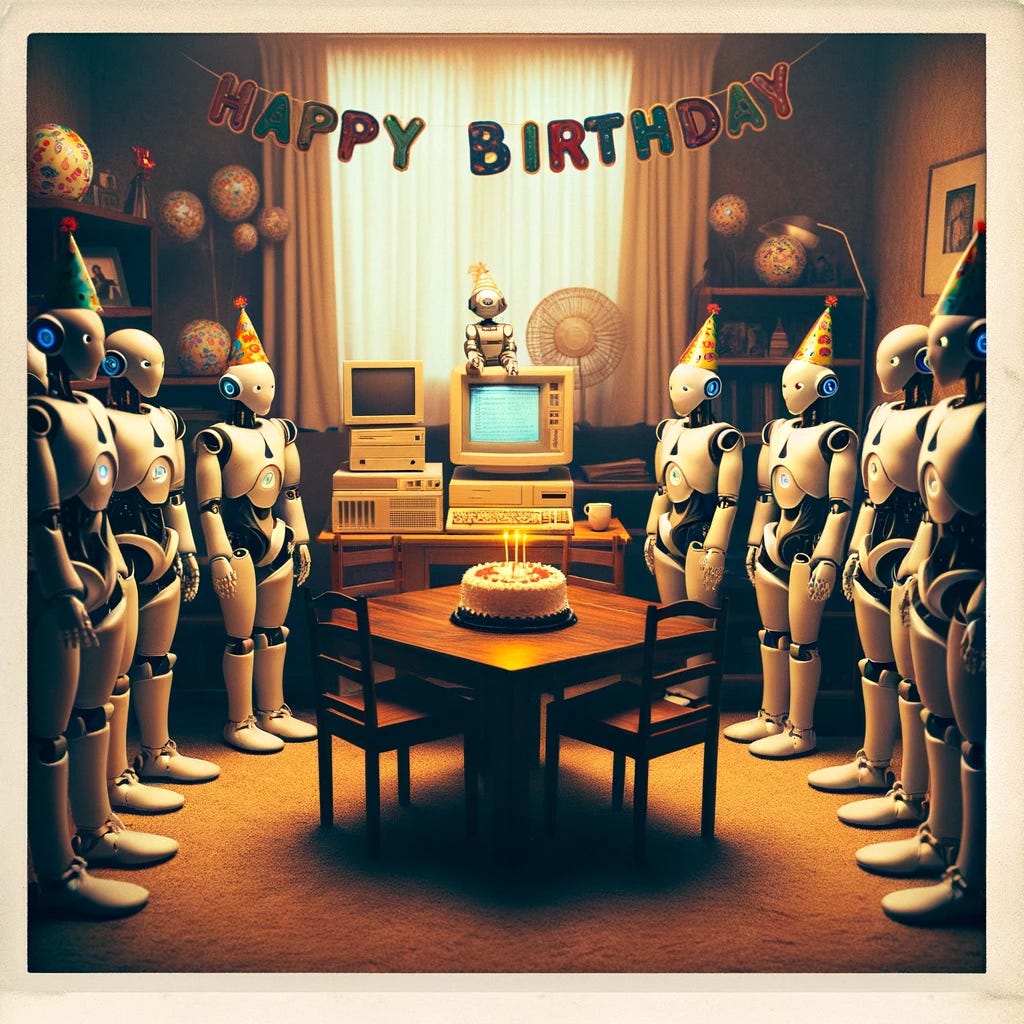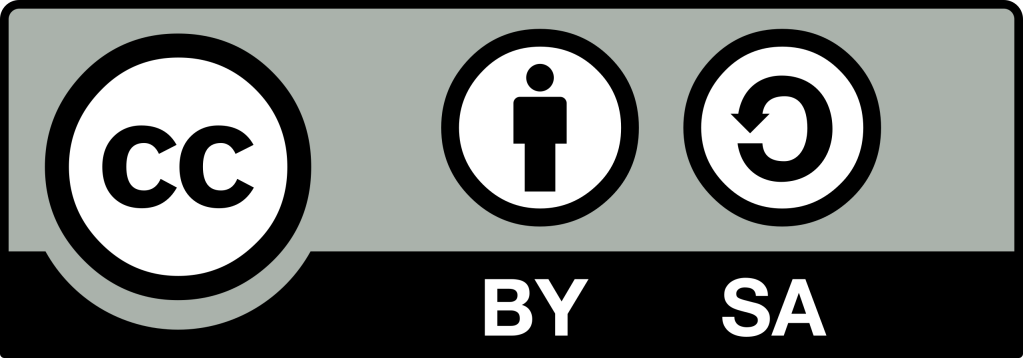Generative AI- 1 Year Later
Happy birthday to ChatGPT...
I certainly didn’t hear about ChatGPT on November 30th when it was released but I was definitely playing with it and use it within two weeks. In fact, it first appeared on my blog by December 12.

This first year of more widely-available generative AI has been interesting but not necessarily revolutionary. I find myself making use of it, but I don't find that it is particularly innovative in the ways that some folks seem to find it or that people are promising in various click-bait content out there. It still feels far from its potential, maybe because it’s still in its infancy or we’re still trying to find the right use cases to fully tap into its potential.
I do think there's a lot of potential for generative AI, particularly, text-generating AI tools. I’m just not finding things that feel substantially different than how I usually work either. I also think there’s great potential for other types of generative AI tools and want to explore them more in the next year.
But as we close the first year of more widely available generative AI, I still have some excitement about its potential but keep seeing more and more limitations.
For instance, in my talks and workshops, I’ve been trying to use ChatGPT to come up with a bunch of examples and case studies. These case studies are supposed to explore different edge uses and challenges related to ChatGPT in particular disciplines. What I keep trying to do to get ChatGPT to generate a thorough list of what edge uses or challenges might be and then, have it randomly choose from that list and apply different examples to particular disciplines and create case studies that draw out complexities.
It can work for 2-4 case studies but then I have to start an entirely new thread, jumpstart the thread and get new examples. Otherwise, it goes into a repetitive mode of largely saying the same things it already said with only slight variation. The generative AI begins to parrot itself.
It’s fine if I only want to work with 2-4 examples in total but my larger goal was to have 2-4 examples per discipline as part of an activity. After playing around with this, easily for 4-5 hours, I had to give up and try something else because it couldn’t do it in any way that felt like reducing time, no matter the strategy I used.
In sharing that I was running into this issue, my colleague, Danielle Leek shared this piece from Michael Feldstein that basically summed up the issue. I was slightly aware of this but found this to be a solid exploration of the issue.
I guess that it’s fitting that text-generating AI feels like it is in its infancy, given that it is only a year old. It may take a while (or may never happen) for it to deliver on a level of complexity that I think will be robustly helpful for writers, scholars, or folks who do a lot of deep knowledge work…or maybe I need to move beyond ChatGPT and see what and if these other tools can offer what ChatGPT is lacking.
Yet, it is unkind to dump on one when it is their birthday and I don’t want to give readers the sense that it is useless. I do think it has some solid ways to help with work.
It still works well as a task-reducer, brainstorming partner, or generator of first drafts of standard communications or outlines of projects, plans, and writing. It has saved me lots of time in those types of tasks. Also, it’s a solid dialogue partner that can help push or extend one’s thinking or get feedback from a particular lens. Those are valuable ways to use it that then may open up more time to do the things that generative AI (currently) cannot.
Even though I’ve been playing a lot with ChatGPT and some other generative AI tools, I think I might be just scratching the surface as we close out this first year. I want to start playing around with other tools in this next year.
I also want to really extend and challenge or change up some of the ways that I'm even using ChatGPT. For instance, for this post, I helped to get it together by using the voice-to-text feature with the ChatGPT app on my phone. It’s not that I had ChatGPT write this post, but used it to capture my speaking it and putting my words into clearer sentences than what I was speaking. I’ll do a future post breaking this down with specific examples and screenshots. Ultimately, it did help me compose the post a bit more quickly, even if I didn’t actually use a lot of the text that I or ChatGPT recorded in the thread.
So that’s where I am at the end of year 1 with ChatGPT. Not feeling overly impressed with the hype and promises; appreciating the ways it has been helpful, and looking to find more distinct ways of using all generative AI tools going forward.
What about you? What are your thoughts and experiences around generative AI at this point?
AI+Edu=Simplified by Lance Eaton is licensed under Attribution-ShareAlike 4.0 International


